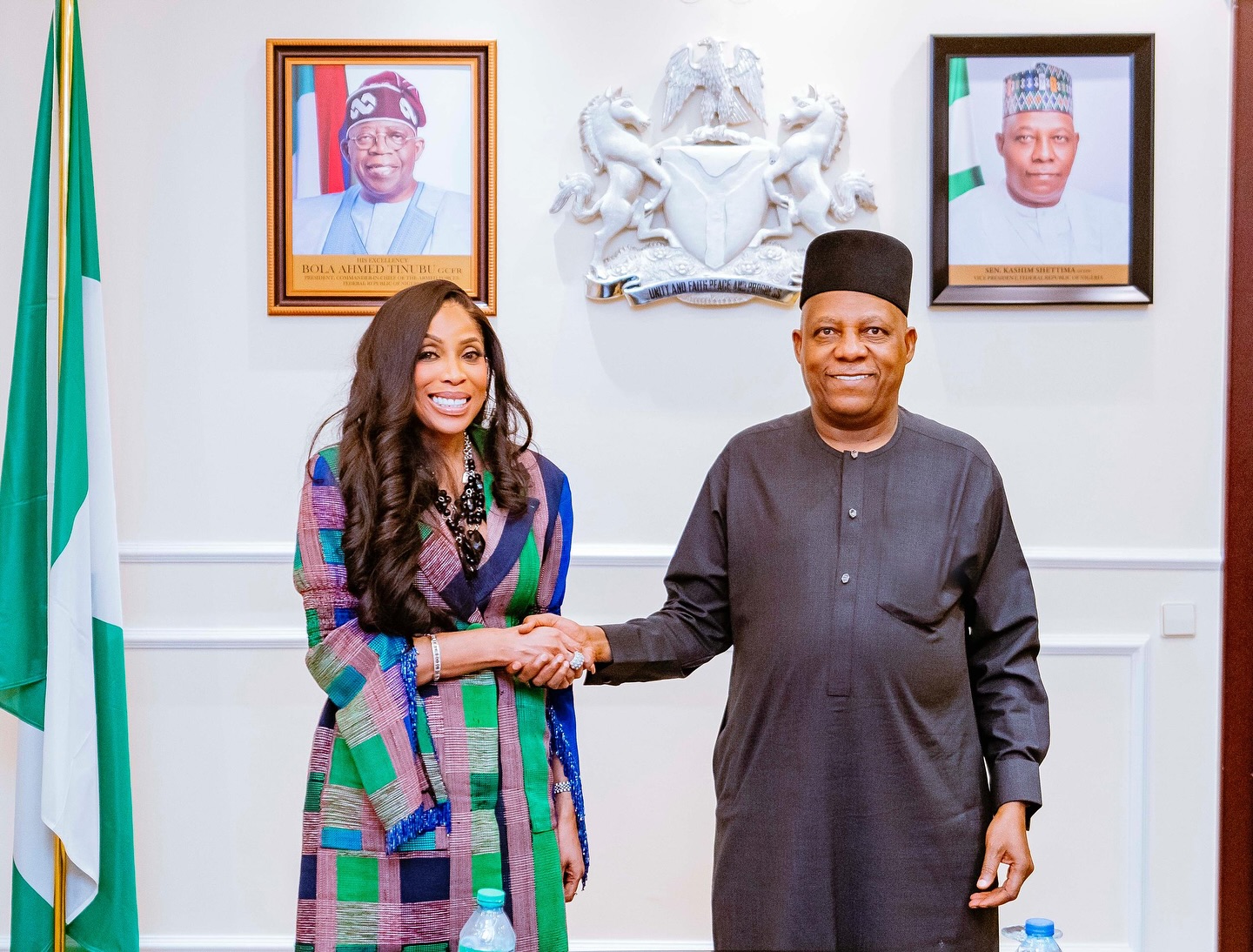“Challenging the Term: ‘I Dislike the Word Nollywood’ – Mo Abudu Advocates for a New Identity”

“Challenging the Term: ‘I Dislike the Word Nollywood’ – Mo Abudu Advocates for a New Identity”

In recent years, Nollywood, Nigeria’s burgeoning film industry, has gained global recognition for its vibrant storytelling and prolific output. However, amidst its growth and international acclaim, one prominent figure within the industry, Mo Abudu, has expressed her discontent with the term “Nollywood.” Abudu, a renowned Nigerian media mogul and filmmaker, believes that the industry deserves a new and more representative identity. In this write-up, we delve into Abudu’s perspective, exploring her reasons for disliking the word “Nollywood” and her advocacy for a different term.
The Limitations of “Nollywood”: At first glance, the term “Nollywood” may seem innocuous, a simple amalgamation of “Nigeria” and “Hollywood” to represent the Nigerian film industry. However, Abudu argues that the word fails to capture the true essence and potential of the industry. She believes that using a derivative of “Hollywood” diminishes the uniqueness and creative prowess of Nigerian cinema. Instead, she suggests that the term inadvertently imposes Western standards and aspirations upon the Nigerian film industry.
Embracing Authenticity and Cultural Identity: Abudu’s desire to find a new term stems from her belief in embracing Nigeria’s rich cultural heritage and diverse storytelling traditions. She highlights that Nigerian films are deeply rooted in local narratives, reflecting the country’s social, political, and cultural realities. By shedding the label “Nollywood,” Abudu envisions a new identity that accurately represents the creative spirit, depth, and authenticity of Nigerian cinema.
An Industry in Evolution: Nigeria’s film industry has come a long way since its inception in the late 1990s. It has experienced tremendous growth, producing a wide range of films that resonate both locally and internationally. Abudu contends that it is essential to acknowledge this evolution and move beyond the confines of the “Nollywood” label. She believes that a new term would help position the industry as a distinct entity, deserving recognition in its own right and breaking free from any preconceived notions or comparisons.
The Power of Language: Mo Abudu recognizes the power of language in shaping perceptions and narratives. She emphasizes the need to reclaim the narrative surrounding Nigerian cinema, allowing the industry to define itself on its own terms. By reevaluating the language used to describe the industry, Abudu aims to shift the discourse and highlight the unique qualities and achievements of Nigerian filmmakers.
Proposing a New Identity: While Abudu acknowledges the complexity of finding a new term that accurately encapsulates the Nigerian film industry, she suggests that a collaborative effort is needed to redefine its identity. She encourages industry stakeholders, filmmakers, and cultural enthusiasts to engage in discussions to identify a more suitable and inclusive term that embraces the industry’s growth, diversity, and cultural significance.
Conclusion: Mo Abudu’s dissatisfaction with the term “Nollywood” stems from a desire to recognize the Nigerian film industry’s distinct identity and creative achievements. By advocating for a different term, she aims to challenge the limitations imposed by the label “Nollywood” and redefine the narrative surrounding Nigerian cinema. As the industry continues to evolve, it is crucial to engage in thoughtful conversations and foster a collective effort to find a new identity that accurately represents the industry’s vibrant spirit and cultural richness.
Do you find Tmaq Media useful? Click here to give us five stars rating!






















